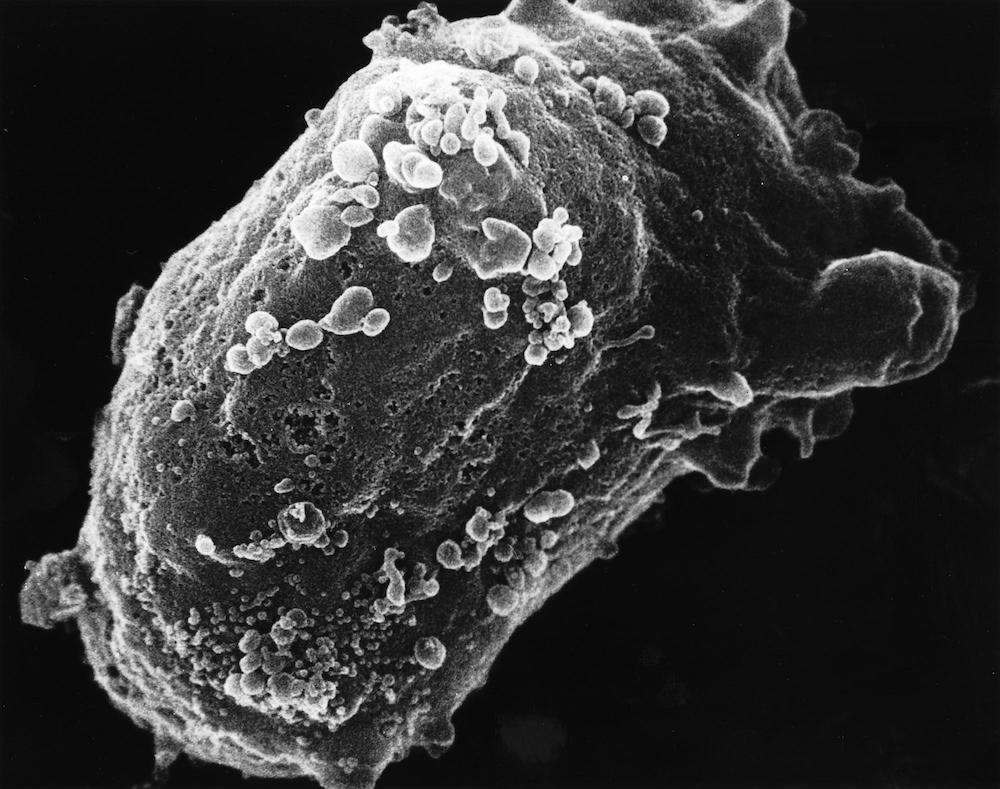Medically reviewed by Charles Thomas, MS, MBA

People infected with human immunodeficiency virus (HIV) or AIDS are more susceptible to certain types of cancer than people who are not infected. In fact, some types of cancers are so common in people with HIV that they are referred to as AIDS-related or AIDS-defining cancers – including Kaposi’s sarcoma, invasive cervical cancer, and non-Hodgkin lymphoma. If a person with HIV is diagnosed with one of these cancers, it can signify the development of AIDS – and therefore, AIDS-related cancers.
Kaposi’s sarcoma is a cancer that develops from the cells that line the blood vessels or lymph nodes and can spread to other tissues of the body. In most cases, it can cause dark purple or brown spots on the skin or in the mouth. Symptoms include swollen lymph nodes, unexplained fever, or weight loss.
Invasive cervical cancer is a cancer that forms in the tissues of the cervix and becomes invasive when the cells grow into deeper layers of the cervix. It is strongly linked to human papilloma virus (HPV), a type of infection related to HIV, and can be detected during PAP tests. Symptoms can include abnormal vaginal bleeding, unusual discharge, or pain during sex.
In Non-Hodgkin lymphoma, cancer cells form in the lymph system and can spread to other areas. There are many types of non-Hodgkin lymphoma, but certain ones – diffuse large B-cell lymphoma, B-cell immunoblastic lymphoma, and small non-cleaved cell or Burkitt lymphoma – are more common in patients with AIDS. Symptoms can include unexplained weight loss or fever, night sweats, painless swollen lymph nodes, and feeling full below the ribs – though these can also apply to other diseases.
People infected with HIV also have a higher risk of developing anal, liver, and lung cancer, as well as Hodgkin lymphoma.
Learn More:
HIV weakens the immune system and compromises the body’s ability to fight infections. As a result, patients with HIV can also become infected with other viruses that can cause certain cancers – including human herpesvirus 8, Epstein Barr virus, HPV, and Hepatitis B and Hepatitis C virus.
Highly active antiretroviral therapy (HAART) can be used to slow the progression of HIV, and treatment can be combined with other anticancer drugs in certain patient cohorts. For women infected with HIV, regular Pap smear tests are recommended for early detection of cancer and changes that could lead to cancer.
Learn more about symptoms, risk factors, and treatments at Dana-Farber/Brigham and Women’s Hematologic Oncology Treatment Center.
